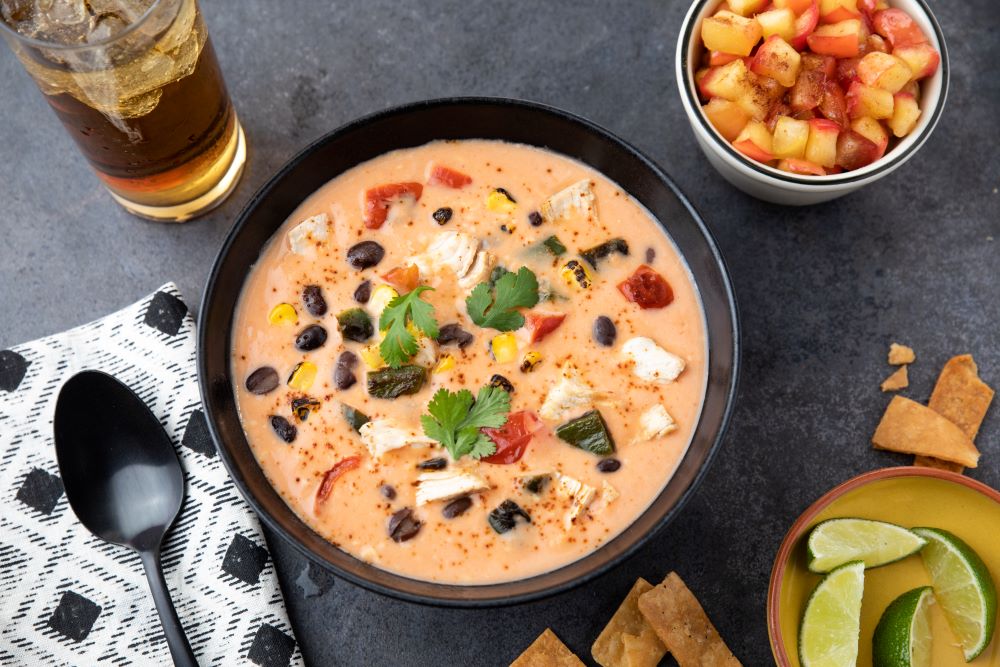If left untreated, chronic kidney disease (CKD) often worsens over time and can progress to end-stage renal disease (ESRD). For those living with CKD or ESRD, eating a well-balanced diet that meets their nutritional needs can have a significant impact on their kidney health.
5 facts about kidney disease
- Prevalence
- More than 1 in 7 adults in the U.S. are estimated to have CKD
- 90% of U.S. adults don’t know they have CKD
- Those who are living with the condition may not have any symptoms until the disease advances or more complications develop
- Costs
Treating kidney disease is expensive, particularly in later stages of the disease.- Medicare spending for patients with ESRD or kidney failure (excluding prescription drugs) totaled $130 billion — more than 24% of total spending
- CKD patients receiving dialysis are admitted to the hospital twice a year and receive inpatient care for an average of 11.2 days
- Policy
Given its prevalence, impact on quality of life and costs, kidney disease is a focus of policy efforts.- The U.S. Department of Health and Human Services’ (HHS) goals include reducing the number of Americans who develop ESRD by 25% by 2030
- The Centers for Medicare & Medicaid Services (CMS) has issued guidance indicating that Americans with ESRD may be able to enroll in Medicare Advantage
- Risk Factors
Having other conditions can increase the risk of developing kidney disease, so early detection and treatment is important. Risk factors include:- Diabetes
- High blood pressure
- Heart disease
- Obesity
- A family history of CKD
- Being 60 years old or older
- Being a minority
- The role of nutrition
Nutrition can not only lower the risk of a person progressing to a higher stage of CKD or ESRD but can also help protect against many of these risk factors — such as diabetes, high blood pressure and obesity — where diet plays a significant role. Monitoring (and often limiting) the amount of sodium, potassium, phosphorus, protein and fluid intake is necessary, and critical to slow down the progression of kidney disease. Studies show incorporating good nutrition is associated with a lower incidence of CKD and a lower mortality in people with kidney disease.
Pilot study: University of Illinois at Urbana-Champaign
Mom’s Meals® worked in collaboration with researchers at the University of Illinois at Urbana-Champaign who wanted to know what effect lower-sodium, home-delivered meals would have on patients undergoing hemodialysis (HD) for kidney failure. Three meals a day for four weeks were provided to participants. Researchers hoped to reduce patients’ interdialytic weight gain (IDWG) and “prime” changes in long-term nutrition behavior.
The 2020 pilot program results showed:
- A significant reduction in interdialytic weight gain among volunteers when compared to the usual dietary habits of HD patients
- A reduction in dietary sodium, thirst, dry mouth (xerostomia) scores, and volume overload, blood pressure and serum phosphorus
Mom's Meals can help
Resources for you
 In the white paper, Nutrition’s Impact on Kidney Disease, you’ll find out how maintaining a nutritious diet has been shown to help prevent and slow the progression of kidney disease, the economic impact of CKD and ESRD and the relationship between CKD and SDOH. You’ll also have access to an infographic, tips sheet and articles to share with those living with this disease.
In the white paper, Nutrition’s Impact on Kidney Disease, you’ll find out how maintaining a nutritious diet has been shown to help prevent and slow the progression of kidney disease, the economic impact of CKD and ESRD and the relationship between CKD and SDOH. You’ll also have access to an infographic, tips sheet and articles to share with those living with this disease.
Renal-friendly meals
Mom’s Meals offers delicious renal-friendly meal options conveniently delivered direct to homes. Crafted by professional chefs and designed by registered dietitians, each ready-to-heat-and-eat meal is tailored to meet the nutritional needs of individuals with stage 3 or 4 CKD, or stage 5 ESRD. We help make it easier for people to incorporate healthy choices into their daily routines to help prevent and manage chronic conditions.



